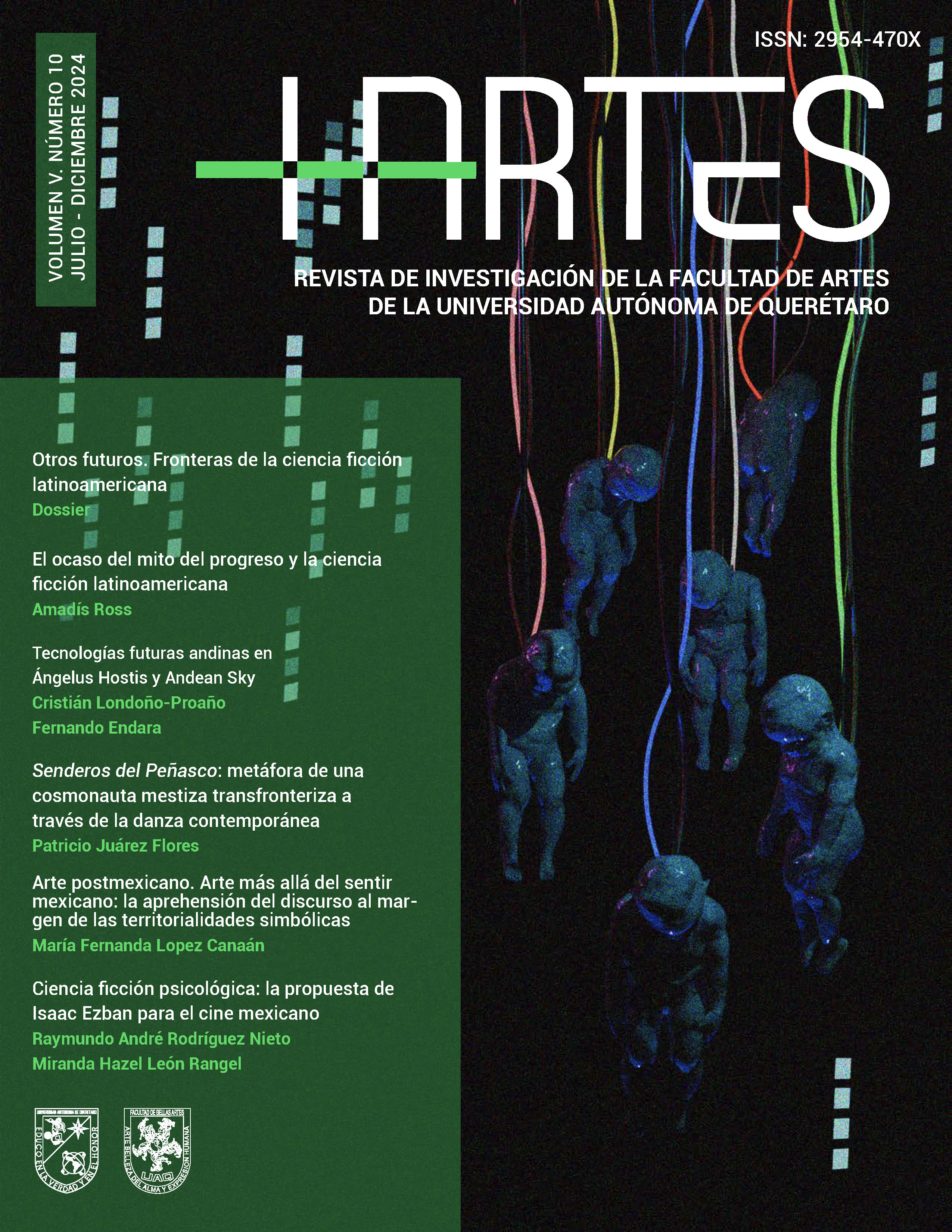Resumen
El arte mexicano siempre ha sido difícil de conceptualizar. Desde nociones que engloban la determinación substancial nacionalista, hasta discursos que se alienan completamente de la aprehensión de lo cultural y social del país, el arte mexicano navega en un terreno vaporoso que es mutable en sí mismo, y que, por ende, es intangible al tacto.
Su conformación gaseosa ha dependido de las diferentes miradas (muchas de estas siendo extranjeras), que lo han estructurado y modelado a través de envases específicos. Estas modulaciones han propiciado el nombramiento del arte mexicano a través de estructuras compactas que mientras permiten una visualización “pertinente”, encierran y controlan la posibilidad de expansión del mismo.
El acto de nombrar es una instancia de poder, y en este sentido, el arte mexicano, no se ha podido nombrar a sí mismo, este más bien, siempre ha sido nombrado.
Es por ello que el arte post-mexicano se presenta como una posibilidad de subversión a través de la aprehensión del simbolismo que conforma a la mexicanidad, y la transgresión de dichos elementos en la reconceptualización de un imaginario nuevo, que posibilite una conscientización del ser mexicano en tiempos postmodernos.
El arte post-mexicano engloba la noción del decolonialismo, a través de una transculturación simbólica por medio de la reaprehensión de los arquetipos que conformaron (y siguen conformando) la cárcel identitaria de lo mexicano, con la posibilidad de hacer una relectura no solo del lenguaje artístico, sino de la misma conformación y conceptualización del ser nacional.
Referencias
Agamben, G. (2018). Signatura rerum: Sobre el método. Adriana Hidalgo.
Cruzvillegas, A. (31 de marzo de 2012). Destrucción total del Museo Nacional De Antropología, un proyecto por Eduardo Abaroa. MA. MESA DE ACCESO.
Debroise, O. y Medina, C. (2006). La era de la Discrepancia. Coordinación de Difusión Cultural, Universidad Nacional Autónoma de México y Editorial Turner-México.
Diccionario Oxford. (2024). Colonizar. En Diccionario Oxford. Recuperado de https://www.oed.com/dictionary/colonize_v?tl=true
Foucault, M. (1971). El orden del Discurso. Ediciones Tusquets.
Lacan, J. (17 de julio de 1949). Le stade du miroir comme formateur de la fonction du Je, telle qu´elle nous est révélée dans l´expérience psychanalitique [Sesión de conferencia]. XVIvo Congreso internacional de psicoanálisis, Zúrich, Suiza.
López Canaán, M.F. (2023). Prototipo de manifiesto del ser mexicano. Autoedición.
Rascuache Residency. (2016). Rascuachismo. Recuperado el 10 de noviembre de 2023 de https:// www.rasquacheresidency.com/copy-of-contact
Ybarra-Frausto, T. (1989). “Rasquachismo: a Chicano sensibility”. Chicano aesthetics: Rasquachismo. Movimiento Artístico del Rio Salado, Phoenix, AZ.: MARS. Recuperado de https://icaa.mfah.org/s/es/item/845510

Esta obra está bajo una licencia internacional Creative Commons Atribución-NoComercial-CompartirIgual 4.0.
Derechos de autor 2024 HArtes


